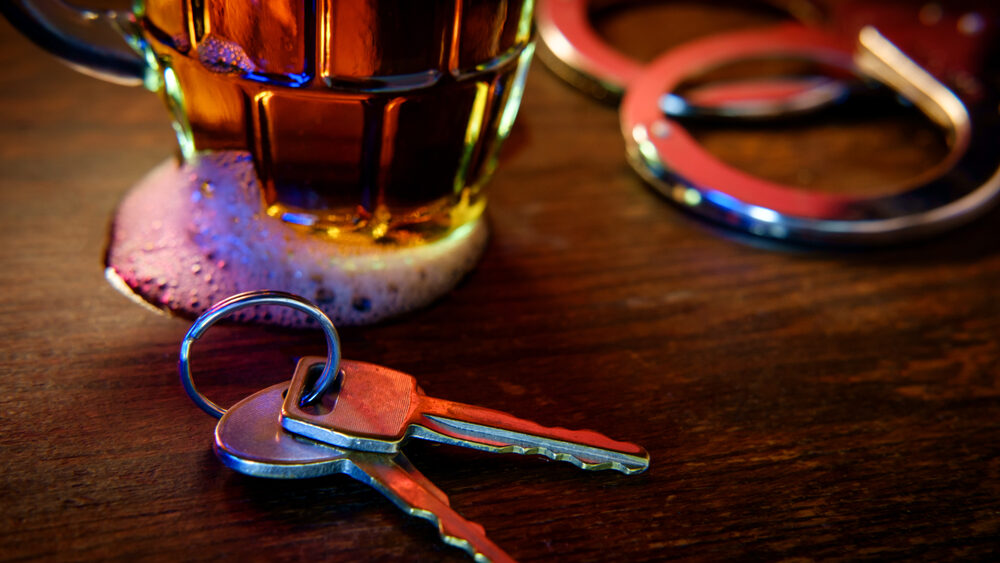Can I Refuse To Stop at a DUI Checkpoint in NJ?

In New Jersey, DUI checkpoints are a critical tool used by law enforcement to enhance road safety and curb drunk driving incidents. These checkpoints are strategically set up during holidays or events known for increased alcohol consumption. Their role is pivotal in safeguarding the public from the risks associated with impaired driving. However, the implementation of DUI checkpoints often leads to questions about the balance between individual rights and legal responsibilities. This article aims to explore the legality of refusing to stop at a DUI checkpoint in New Jersey and the potential consequences of such actions, providing a comprehensive understanding of one’s rights and responsibilities.
What Are DUI Checkpoints?
DUI checkpoints, also known as sobriety roadblocks, are designated areas where law enforcement officers station themselves to screen drivers for intoxication or impairment signs. These checkpoints are a cornerstone strategy in combating drunk driving, a leading cause of road accidents and fatalities in New Jersey. The concept is straightforward yet impactful: by establishing these checkpoints, police aim to intercept and deter those driving under the influence, thereby enhancing road safety for all.
How do checkpoints operate? Police typically section off a part of the road and conduct vehicle stops based on a predetermined pattern (e.g., every third or fifth vehicle) to maintain fairness. The primary objective is deterrence, achieved by making the roads safer and discouraging impaired driving. Advance publicization of checkpoints through local media or police announcements serves a dual purpose: it maintains transparency and further deters impaired driving by raising public awareness.
Legal Framework Surrounding DUI Checkpoints in NJ
DUI checkpoints in New Jersey are fully sanctioned by state law and align with the U.S. Constitution, despite initial impressions that they might contravene the Fourth Amendment’s safeguard against unreasonable searches and seizures. The allowance for DUI checkpoints stems from a balance struck between individual rights and the collective safety of the public. The U.S. Supreme Court has determined that the public safety benefits provided by DUI checkpoints justify the minimal intrusion on individual privacy, particularly when these checkpoints are executed correctly.
For a DUI checkpoint to be lawful in New Jersey, it must adhere to specific criteria. The selection of checkpoint locations and times is based on DUI-related data, ensuring that checkpoints are established where they are most needed. Moreover, checkpoints must be announced in advance, promoting drunk driving deterrence and ensuring fairness in their implementation.
Your Rights at a DUI Checkpoint
When you approach a DUI checkpoint in New Jersey, it’s important to know your rights. You have the right to remain silent, and you are not required to answer questions about where you’ve been or whether you’ve been drinking. However, you are required to provide your driver’s license, registration, and proof of insurance when requested.
It’s also vital to recognize the boundaries of these rights. New Jersey’s “implied consent” law stipulates that by operating a vehicle on New Jersey’s roadways, you have consented to undergo breathalyzer testing if suspected of DUI. Refusal to comply with this test can result in penalties, including license suspension and fines.
Can You Refuse to Stop at a DUI Checkpoint in NJ?
The unequivocal answer is no. If you approach a DUI checkpoint, you are legally required to stop. Refusing to stop can lead to serious consequences, including charges for obstruction of justice or evading police. The reason for this is clear: DUI checkpoints are legal and have been established for the safety of all road users. By refusing to stop, you’re not only breaking the law but also potentially putting yourself and others at risk.
How to Behave if You Decide to Stop
If you decide to stop at a DUI checkpoint (and legally, you must), there are a few things to keep in mind to ensure the process goes smoothly. First, stay calm and be polite to the officers. Hand over your license, registration, and insurance card when asked. If the officer suspects you might be under the influence and asks you to perform a field sobriety test or take a breathalyzer test, remember that refusal can lead to automatic penalties. It’s also wise not to volunteer any additional information or admit to drinking. Simply comply with the requests and remember that you have the right to seek legal representation if you’re arrested or if you believe your rights have been infringed upon.
Seeking Legal Assistance
Facing DUI/DWI charges in New Jersey, or questioning the legality of a DUI checkpoint encounter, necessitates professional legal advice. The complexities surrounding DUI charges can be daunting, but experienced legal representation can significantly impact your case’s outcome. At Bramnick Law, we are dedicated to offering comprehensive legal support, guiding you through the legal maze, and advocating for your rights at every step.
Contact Criminal Defense Attorneys at Bramnick Law Today for a Free Consultation to Discuss Your DUI/DWI Charges
If you’re navigating the complexities of DUI/DWI charges in New Jersey, you understand the importance of having a skilled legal team by your side. At Bramnick Law, we specialize in providing robust defense strategies tailored to the unique circumstances of your case. Our experienced attorneys are well-versed in New Jersey’s DUI laws and dedicated to protecting your rights every step of the way.
From the moment you’re stopped at a DUI checkpoint to the resolution of your case, Bramnick Law stands ready to offer the guidance and support you need. We pride ourselves on our commitment to our clients, ensuring that you’re informed and empowered throughout the legal process. Our goal is not just to advocate for you in court, but to secure the best possible outcome for your situation.
Facing DUI/DWI charges can be overwhelming, but you don’t have to go through it alone. Let Bramnick Law be your ally in this challenging time. Contact us today for a free consultation, and take the first step towards putting your DUI/DWI charges behind you.

